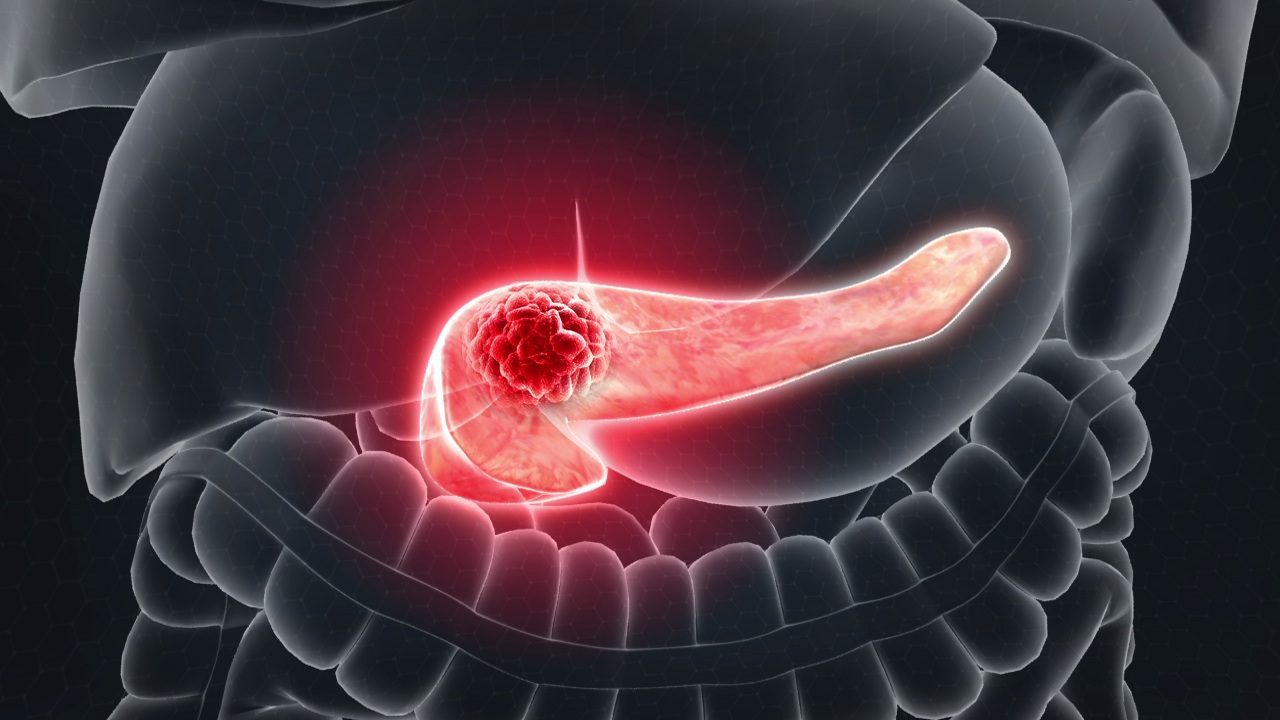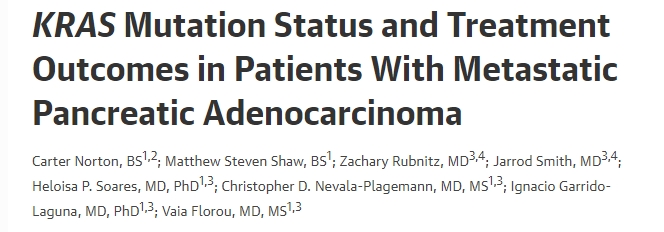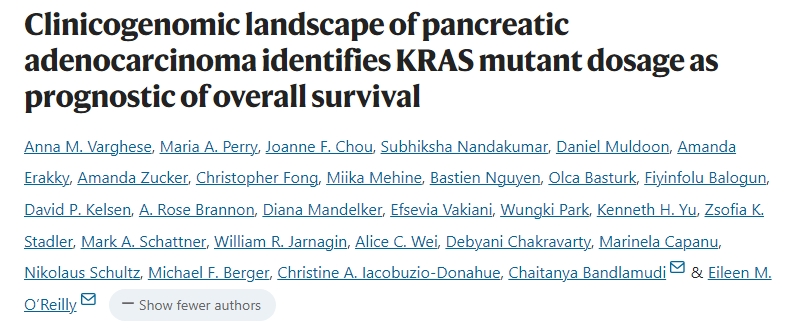
Anirban Maitra: The impact of KRAS allelic status on outcomes in Pancreatic Cancer
Anirban Maitra, Professor of Pathology and Translational Molecular Pathology at UT MD Anderson Cancer Center, shared the following articles on X:
“New JAMA Network Open study by Ignacio Garrido-Laguna in collaboration with Foundation Medicine and Flatiron Health on the impact of KRAS allelic status on outcomes in Pancreatic Cancer.
In ~2500 patients, those with wild-type KRAS have the most favorable outcomes followed by G12R and then G12V/G12D (favorable is relative). The co-mutation frequencies of each KRAS allele are highlighted, which reiteratesthat KRAS WT (often alternative driver with fusions) is a pretty much different disease with low frequencies of CDKN2A, p53, and SMAD4 mutations(the big three TSGs).
‘KRAS Mutation Status and Treatment Outcomes in Patients With Metastatic Pancreatic Adenocarcinoma‘
Authors: Carter Norton, Matthew Steven Shaw, Zachary Rubnitz, Jarrod Smith, Heloisa P. Soares, Christopher D. Nevala-Plagemann, Ignacio Garrido-Laguna and Vaia Florou

That KRAS Wild type Pancreatic Cancer is a distinct entity from KRAS mutant disease was also recently reported by Eileen M O’Reilly and colleagues in their single institution study from Memorial Sloan Kettering Canczer Center in Nature Medicine.”
Authors: Anna M. Varghese, Maria A. Perry, Joanne F. Chou, Subhiksha Nandakumar, Daniel Muldoon, Amanda Erakky, Amanda Zucker, Christopher Fong, Miika Mehine, Bastien Nguyen, Olca Basturk, Fiyinfolu Balogun, David P. Kelsen, A. Rose Brannon, Diana Mandelker, Efsevia Vakiani, Wungki Park, Kenneth H. Yu, Zsofia K. Stadler, Mark A. Schattner, William R. Jarnagin, Alice C. Wei, Debyani Chakravarty, Marinela Capanu, Nikolaus Schultz, Michael F. Berger, Christine A. Iacobuzio-Donahue, Chaitanya Bandlamudi and Eileen M. O’Reilly

Anirban Maitra has served as Professor of Pathology and Translational Molecular Pathology at UT MD Anderson Cancer Center since August 2013 and directs the Sheikh Ahmed Pancreatic Cancer Research Center. He leads an NCI-funded laboratory dedicated to pancreatic cancer research, focusing on genetics and molecular pathology in human and mouse models. His research aims to advance early detection and interception strategies to enhance patient survival rates in pancreatic cancer.
More posts featuring Anirban Maitra.
-
Challenging the Status Quo in Colorectal Cancer 2024
December 6-8, 2024
-
ESMO 2024 Congress
September 13-17, 2024
-
ASCO Annual Meeting
May 30 - June 4, 2024
-
Yvonne Award 2024
May 31, 2024
-
OncoThon 2024, Online
Feb. 15, 2024
-
Global Summit on War & Cancer 2023, Online
Dec. 14-16, 2023
